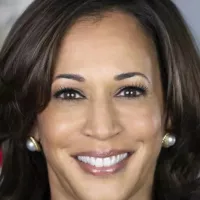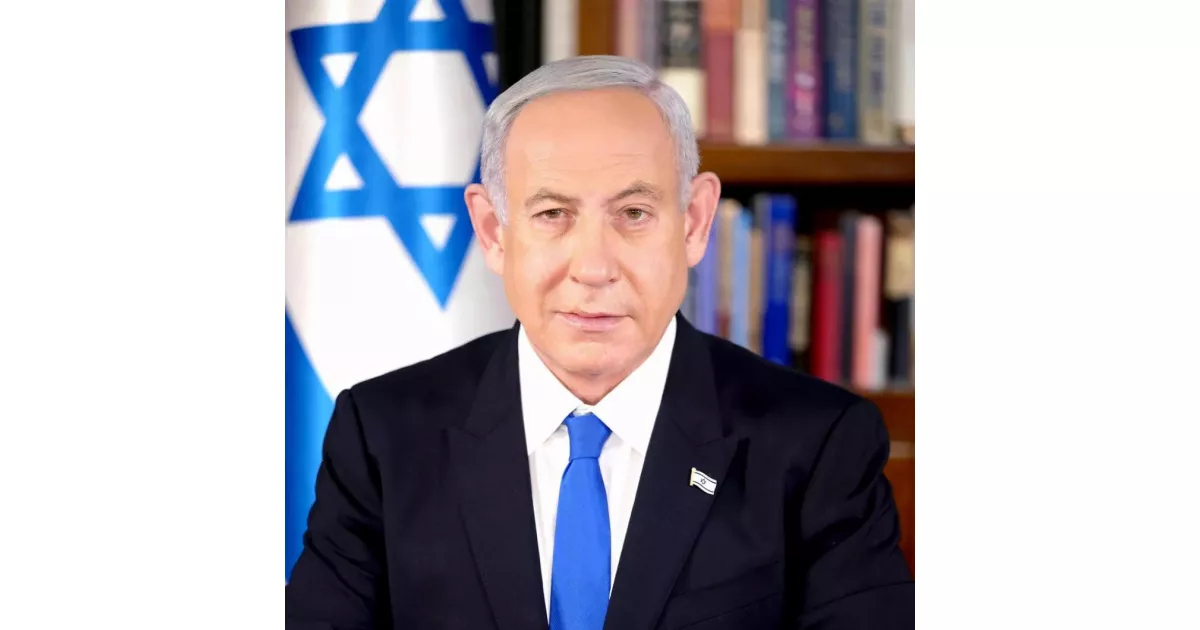From career breakthroughs to professional milestones, explore how Benjamin Netanyahu made an impact.
Benjamin "Bibi" Netanyahu is a prominent Israeli politician and diplomat. He currently serves as the Prime Minister of Israel, a position he assumed in 2022. Notably, he also held this office for two previous terms: from 1996 to 1999 and again from 2009 to 2021. His cumulative time in office makes him the longest-serving prime minister in Israeli history. He has been a central figure in Israeli politics for over two decades, shaping the country's policies and international relations.
1967: Joined Israel Defense Forces
In 1967, Benjamin Netanyahu returned to Israel to join the Israel Defense Forces.
March 1968: Participated in the Battle of Karameh
In March 1968, Benjamin Netanyahu participated in the Battle of Karameh.
May 1972: Rescued Sabena Flight 571
In May 1972, Benjamin Netanyahu was involved in the rescue of the hijacked Sabena Flight 571, during which he was shot in the shoulder.
October 1973: Served in Yom Kippur War
In October 1973, Benjamin Netanyahu returned to Israel to serve in the Yom Kippur War.
1976: Worked for the Boston Consulting Group
Between 1976 and 1978, Benjamin Netanyahu worked as an economic consultant for the Boston Consulting Group in Boston, Massachusetts.
1978: Worked for the Boston Consulting Group
Between 1976 and 1978, Benjamin Netanyahu worked as an economic consultant for the Boston Consulting Group in Boston, Massachusetts.
1978: Founded the Yonatan Netanyahu Anti-Terror Institute
In 1978, Benjamin Netanyahu moved back to Israel and founded the Yonatan Netanyahu Anti-Terror Institute.
1978: Appeared on Boston local television
In 1978, Netanyahu appeared on Boston local television, under the name "Ben Nitay", to discuss the Arab-Israeli conflict.
1980: Ran the Jonathan Netanyahu Anti-Terror Institute
From 1978 to 1980, he ran the Jonathan Netanyahu Anti-Terror Institute, a non-governmental organization devoted to the study of terrorism.
1982: Became director of marketing for Rim Industries
From 1980 to 1982, he was director of marketing for Rim Industries in Jerusalem.
1982: Appointed Deputy Chief of Mission at Israeli Embassy
In 1982, Moshe Arens appointed Benjamin Netanyahu as his Deputy Chief of Mission at the Israeli Embassy in Washington, D.C.
1984: Served as Israeli ambassador to the United Nations
Between 1984 and 1988, Netanyahu served as the Israeli ambassador to the United Nations.
1988: Served as Israeli ambassador to the United Nations
Between 1984 and 1988, Netanyahu served as the Israeli ambassador to the United Nations.
1988: Joined the Likud party
Prior to the 1988 Israeli legislative election, Netanyahu returned to Israel and joined the Likud party.
1992: Defeat of the Likud party in Israeli legislative elections
Following the defeat of the Likud party in the 1992 Israeli legislative elections, Shamir retired from politics shortly after the Likud's defeat in the 1992 elections.
1993: Opposition to Oslo Accords
In 1993, Benjamin Netanyahu argued against the Oslo peace process in his book A Place Among the Nations.
1993: Elected as chair of Likud
In 1993, Benjamin Netanyahu rose to prominence after his election as chair of Likud, becoming leader of the opposition.
1993: Netanyahu confesses to affair
In 1993, Netanyahu publicly confessed on live television to having an affair with his public relations advisor, Ruth Bar, after a rival threatened to release a secretly recorded video.
1993: Victorious in Likud party leadership election
In 1993, the Likud party held a party leadership election, and Netanyahu was victorious.
1995: Netanyahu argues for tighter immigration laws to combat terrorism
In his 1995 book, Netanyahu argued that tightening immigration laws in the West is the most effective method to combat terrorism, advocating for an end to the "era of immigration free-for-all".
May 1996: Won the Israeli legislative election
Benjamin Netanyahu won the 1996 Israeli legislative election, which took place on May 29, 1996 becoming the youngest person in the history of the position and the first Israeli prime minister to be born in the State of Israel.
September 1996: Netanyahu meets Arafat for the first time
On 4 September 1996, Netanyahu met Palestinian president Arafat for the first time after speaking with him by telephone. At the meeting, Netanyahu emphasized the need to consider the requirements of both sides based on reciprocity and security, while Arafat expressed his determination to work with Netanyahu and his government.
1996: Became first directly elected Israeli Prime Minister
In 1996, Benjamin Netanyahu became the first Israeli prime minister to be elected directly by popular vote.
1996: First term as Prime Minister
In 1996, Benjamin Netanyahu began his first term as Prime Minister of Israel.
1996: Netanyahu's Likud party victory in the Israeli general election
In 1996, the bombing campaign and the Israeli intelligence services failure to prevent it, led to the defeat of Prime Minister Shimon Peres and the Israeli Labor Party in the Israeli general election and victory of the Likud party of Netanyahu, who opposed the Oslo Accords.
January 1997: Signing of the Hebron Protocol
On 14 January 1997, the talks between Netanyahu and Arafat culminated in the signing of the Hebron Protocol.
November 1998: Approval of the Wye River Memorandum
In November 1998, Netanyahu and Arafat signed the Wye River Memorandum, detailing steps for the Israeli government and Palestinian Authority to implement the Interim Agreement of 1995. On 17 November 1998, the Knesset approved the Wye River Memorandum by 75–19.
1998: Netanyahu's Reputation as a Free-Market Advocate
By 1998, Benjamin Netanyahu had a reputation as a free-market advocate.
1999: Netanyahu temporarily retires from politics
After being defeated by Ehud Barak in the 1999 Israeli prime ministerial election, Netanyahu temporarily retired from politics.
1999: Advocacy for Free Markets
In 1999, Benjamin Netanyahu told the Jerusalem Post that "peace, without free markets, will not produce growth. But free markets without peace do produce growth."
1999: Defeated in election, entered private sector
In 1999, Netanyahu was defeated in the election and subsequently entered the private sector.
2000: Netanyahu expresses desire to return to politics
With the fall of the Barak government in late 2000, Netanyahu expressed his desire to return to politics. Netanyahu decided eventually not to run for the prime minister position, a move which facilitated the rise to power of Ariel Sharon.
2001: Netanyahu's Remarks on Peace Process
In 2001, Benjamin Netanyahu, reportedly unaware he was being recorded, made remarks about reneging on commitments made by previous Israeli governments as part of the peace process.
2002: Netanyahu appointed as foreign minister
In 2002, after the Israeli Labor Party left the coalition and vacated the position of foreign minister, Prime Minister Ariel Sharon appointed Netanyahu as foreign minister. Netanyahu challenged Sharon for the leadership of the Likud party in the 2002 Likud leadership election, but failed to oust him.
2003: Netanyahu appointed as Finance Minister
After the 2003 Israeli legislative election, Sharon offered Netanyahu the Finance Ministry. Netanyahu accepted the new appointment. Sharon and Netanyahu came to an agreement that Netanyahu would have complete freedom as finance minister and have Sharon back all of his reforms, in exchange for Netanyahu's silence over Sharon's management of Israel's military and foreign affairs.
2003: Appointment as Finance Minister
From 2003 to 2005, Benjamin Netanyahu served as finance minister, introducing a welfare to work program, a program of privatization, reduced the public sector, streamlined taxation, and passed laws against monopolies and cartels to increase competition.
August 2005: Netanyahu resigns before Gaza withdrawal vote
On 7 August 2005, Netanyahu submitted his resignation letter shortly before the Israeli cabinet voted to approve the initial phase of withdrawal from Gaza.
September 2005: Netanyahu tries to hold early primaries
In September 2005 Netanyahu had tried to hold early primaries for the position of the head of the Likud party, while the party held the office of prime minister – thus effectively pushing Ariel Sharon out of office. The party rejected this initiative.
December 2005: Netanyahu retakes Likud leadership
On 20 December 2005, Netanyahu retook the leadership with 47% of the primary vote.
2005: End of Term as Finance Minister
Benjamin Netanyahu's term as finance minister ended in 2005, during which he implemented significant economic reforms.
2005: Returned to lead Likud
In 2005, Netanyahu returned to lead Likud, leading the opposition between 2006 and 2009.
March 2006: Likud takes third place in Knesset elections
In March 2006 Knesset elections, Likud took the third place behind Kadima and Labor and Netanyahu served as Leader of the Opposition.
2006: Led opposition
In 2006, Netanyahu led the opposition between 2006 and 2009.
August 2007: Netanyahu reelected as Likud chairman
On 14 August 2007, Netanyahu was reelected as chairman of the Likud and its candidate for the post of prime minister with 73% of the vote.
2007: Comparison of Iran to Nazi Germany
In a 2007 interview, Benjamin Netanyahu stated that the only difference between Nazi Germany and the Islamic Republic of Iran is that Nazi Germany sought atomic weapons after entering a worldwide conflict, while Iran is seeking atomic weapons first and will then start a world war.
2008: Repetition of Remarks Comparing Iran to Nazi Germany
In 2008, Benjamin Netanyahu repeated his remarks comparing Iran to Nazi Germany at a news conference.
January 2009: Continuing Settlement Expansion Policy
In January 2009, Benjamin Netanyahu informed Middle East envoy Tony Blair that he would continue the Israeli government's policy of expanding West Bank settlements, while refraining from building new ones.
February 2009: Netanyahu supports new elections
Following Tzipi Livni's election to head Kadima and Olmert's resignation from the post of prime minister, Netanyahu declined to join the coalition Livni was trying to form and supported new elections, which were held in February 2009. Netanyahu was the Likud's candidate for prime minister in the 2009 Israeli legislative election which took place on 10 February 2009.
February 2009: Netanyahu designated as Prime Minister
In February 2009, Netanyahu was designated by Israeli President Shimon Peres to succeed Ehud Olmert as prime minister, and began his negotiations to form a coalition government.
February 2009: Netanyahu describes Iran as greatest threat to Israel
In February 2009, after being asked to be prime minister, Netanyahu described Iran as the greatest threat Israel has ever faced, stating that "Iran is seeking to obtain a nuclear weapon and constitutes the gravest threat to our existence since the war of independence."
March 2009: Netanyahu's government approved by Knesset
In March 2009 Netanyahu presented his cabinet for a Knesset "Vote of Confidence" on 31 March 2009. The 32nd Government was approved that day by a majority of 69 lawmakers to 45 and the members were sworn in.
July 2009: Government Approval and Economic Measures
In July 2009, a survey indicated that most Israelis supported Netanyahu's government, giving him an approval rating of 49 percent. Also in July 2009, Netanyahu lifted checkpoints in the West Bank to allow free movement and flow of imports, resulting in an economic boost.
August 2009: Statements on Israel's National Identity and Potential Compromises
In August 2009 Netanyahu stated that he wanted recognition of Israel as the national state of the Jewish people, and also wanted a security settlement. Also in August 2009, Mahmoud Abbas declared he would be willing to meet with Netanyahu at the UN General Assembly. Netanyahu was considering a compromise over construction in the West Bank, in exchange for freezing settlements.
September 2009: Netanyahu addresses UN on Iran
In September 2009, Netanyahu addressed the UN in New York, expressing a different opinion to Iranian president Ahmadinejad's speech. Netanyahu stated that those who believe Tehran is a threat only to Israel are wrong, characterizing the Iranian regime as motivated by fanaticism and aiming to return the world to medieval times.
September 2009: Address to the UN General Assembly
On 24 September 2009, Netanyahu addressed the UN General Assembly, stating that Iran posed a threat to world peace and the UN needed to prevent it from obtaining nuclear weapons. He also responded to Iranian president Mahmoud Ahmadinejad's questioning of the Holocaust.
2009: Became Prime Minister Again
After the 2009 legislative election, Netanyahu formed a coalition and became prime minister again.
2009: Advocating an "Economic Peace" Approach
In 2009, Benjamin Netanyahu advocated for an "economic peace" approach, based on economic cooperation and joint effort rather than political contention, and raised these ideas with U.S. Secretary of State Condoleezza Rice.
2009: Endorsement of a "Demilitarized Palestinian State"
In 2009, Netanyahu endorsed a "Demilitarized Palestinian State", stating he would accept a Palestinian state if Jerusalem remained the united capital of Israel, the Palestinians had no army, and gave up their demand for a right of return. He argued for a "natural growth" in Jewish settlements in the West Bank and endorsed a Palestinian state alongside Israel. He also stated he would be willing to meet with any "Arab leader" for negotiations without preconditions.
2009: Statements Against Gaza Pullout
In 2009, speaking at a cabinet meeting, Benjamin Netanyahu promised not to repeat the "mistake" of the Gaza pullout, asserting it brought neither peace nor security.
March 2010: Approval of Construction in Jerusalem
In March 2010, Israel's government approved the construction of 1,600 apartments in Ramat Shlomo, a Jewish housing development in northeast Jerusalem, despite U.S. opposition. The announcement coincided with a visit from U.S. Vice-president Joe Biden, and the US publicly condemned the plan. Netanyahu defended the decision by stating that previous Israeli governments had continuously permitted construction in the neighborhood.
September 2010: Agreement to Direct Talks and End of Settlement Freeze
In September 2010, Netanyahu agreed to enter direct talks with the Palestinians, mediated by the Obama administration, with the aim of reaching a "final status settlement." On 27 September 2010, the 10-month settlement freeze ended, and the Israeli government approved new construction in the West Bank, including East Jerusalem.
2010: Formation of the Concentration Committee
In 2010, Netanyahu formed the Concentration Committee, which resulted in the Business Concentration Law of 2013.
2011: Israeli Social Justice Protests and Committee Appointment
In 2011, Israeli social justice protests arose due to Israel's high cost of living. In response, Netanyahu appointed the Trajtenberg Committee to submit recommendations to lower living costs. Although Netanyahu promised to push the reforms through cabinet, differences inside his coalition resulted in gradual adoption.
October 2012: Merger of Likud and Yisrael Beiteinu Parties
In October 2012, Netanyahu and Foreign Minister Avigdor Lieberman announced that their parties, Likud and Yisrael Beiteinu, had merged and would run together on a single ballot in Israel's 2013 elections.
2012: Expression of Appreciation for Hebrew Israelite Community
In 2012, Benjamin Netanyahu expressed appreciation towards "the cooperative society that is working towards the inclusion of the Hebrew Israelite community in Israeli society at large," and declared that the community's experience in Israel is "an integral part of the Israeli experience."
July 2013: Tenders for Construction of Private Ports
In July 2013, Netanyahu issued tenders for the construction of private ports in Haifa and Ashdod to break what he viewed as the monopoly held by workers of the Israel Port Authority, so as to lower consumer prices and increase exports.
December 2013: Knesset Approval of the Business Concentration Law
In December 2013, the Knesset approved the Business Concentration Law, which intended to open Israel's highly concentrated economy to competition to lower consumer prices, reduce income inequality, and increase economic growth.
2013: Denial of Peace Talk Agreements Based on Green Line
In 2013, Benjamin Netanyahu denied reports that his government would agree to peace talks on the basis of the green line.
June 2014: Criticism of Palestinian Unity Government and Response to Teenager Kidnapping
In June 2014, Netanyahu spoke of his concerns regarding the agreement between Hamas and the Palestinian Authority to form a unity government. He was critical of the United States and European governments' decision to work with the Palestinian coalition government. He also blamed Hamas for the kidnapping and murder of three Israeli teenagers and launched a massive search and arrest operation on the West Bank, targeting members of Hamas. The bodies of the teenagers were discovered on 30 June 2014.
October 2014: Privatization Plan and Criticism of Settlements
In October 2014, Netanyahu's government approved a privatization plan to reduce corruption and politicization in government companies. Also in October 2014, Netanyahu called criticism of settlements "against the American values", which earned him a rebuke from the White House Press Secretary. Netanyahu explained that he does not accept residency restrictions for Jews.
December 2014: Firing of Ministers and Dissolution of Government
On 2 December 2014, Netanyahu fired ministers Yair Lapid and Tzipi Livni. These changes led to the dissolution of the government, with new elections scheduled for 17 March 2015.
2014: Agreement to American Framework Based on Green Line
In 2014, Benjamin Netanyahu agreed to the American framework based on the green line and stated that Jewish settlers must be allowed the option of staying in their settlements under Palestinian rule.
2014: Statements on Peace
In 2014, Benjamin Netanyahu made statements regarding peace.
March 2015: Address to the United States Congress
Benjamin Netanyahu delivered his 2015 address to the United States Congress, marking his third speech to a joint session. The day before announcing he would address Congress, he tried to derail a meeting between U.S. lawmakers and the head of Mossad, Tamir Pardo, who intended warning them against imposing further sanctions against Iran. Objections included the arrangement of the speech without the support and engagement of the Obama administration and the timing of the speech before Israel's March 2015 election.
May 2015: Election Results and Coalition Formation
In the 2015 election, Netanyahu's Likud party led the elections with 30 mandates. President Rivlin granted Netanyahu an extension until 6 May 2015 to build a coalition. He formed a coalition government within two hours of the midnight 6 May deadline, with the Likud party forming the coalition with Jewish Home, United Torah Judaism, Kulanu, and Shas.
August 2015: Approval of Two-Year Budget
In August 2015, Netanyahu's government approved a two-year budget that would see agricultural reforms and lowering of import duties to reduce food prices, deregulation of the approval process in construction to lower housing costs and speed up infrastructure building, and reforms in the financial sector to boost competition and lower fees for financial services. However, the government was forced to compromise by removing some key agricultural reforms.
2015: Statements on Palestinian Statehood
As election day approached in 2015, Netanyahu stated that a Palestinian state would not be established in his term. He said that support of a Palestinian state is tantamount to yielding territory for radical Islamic terrorists to attack Israel. However, Netanyahu reiterated "I don't want a one-state solution. I want a peaceful, sustainable two-state solution. I have not changed my policy."
2015: Response to Ethiopian Jewish Protests
In 2015, after Ethiopian Jewish protests against police brutality, Benjamin Netanyahu pledged to bring a comprehensive plan to the government to assist them and stated that there is no room for racism and discrimination in Israeli society.
2016: Closeness to Donald Trump became central
From 2016, Netanyahu made his closeness to Donald Trump central to his appeal.
2017: Call for Death Penalty in Halamish Attack
In 2017, Benjamin Netanyahu called for the death penalty to be imposed on the perpetrator of the 2017 Halamish stabbing attack, and his government introduced a bill allowing the death penalty for terrorism.
2018: Preliminary Vote on Death Penalty Bill
In 2018, a preliminary vote in parliament favored making it easier for judges to hand down the death penalty, with 52 of 120 members voting in favor.
June 2019: Netanyahu renames settlement after Trump
In June 2019, Netanyahu officially renamed a settlement in the disputed Golan Heights after Donald Trump.
2019: Statements on Bolstering Hamas to Thwart Palestinian State
In 2019, Benjamin Netanyahu stated at a private Likud party meeting that supporting Hamas and transferring money to them was part of a strategy to isolate Palestinians in Gaza from those in the West Bank and thwart the establishment of a Palestinian state.
January 2020: Support for Trump's Peace Plan
In January 2020, Benjamin Netanyahu publicly supported Donald Trump's Israeli-Palestinian peace plan.
May 2020: Netanyahu Sworn in for Fifth Term Amid Protests
On 17 May 2020, Netanyahu was sworn in for a fifth term as prime minister in a coalition with Benny Gantz. Against a background of the COVID-19 pandemic in Israel and Netanyahu's criminal trial, protests broke out against him in front of the prime minister's residence.
September 2020: Signing of Abraham Accords
In September 2020, the U.S.-brokered Abraham Accords, which led to normalization agreements between Israel and the United Arab Emirates and Bahrain, were signed by Bahrain's foreign minister, UAE's foreign minister, and Benjamin Netanyahu at the White House.
March 2021: Israel Achieves High Vaccination Rate
By March 2021, Israel became the country with the highest vaccinated population per capita in the world against COVID-19.
June 2021: Netanyahu Ousted as Prime Minister
On 13 June 2021, Naftali Bennett and Yair Lapid formed a coalition government, and Netanyahu was ousted as prime minister, ending his 12-year tenure.
December 2022: Netanyahu Sworn in as Prime Minister Again
After the 2022 election, Netanyahu was sworn in as prime minister again as the leader of a hardline coalition. He started his sixth term on 29 December 2022.
2022: Returned to premiership
After the 2022 election, Netanyahu returned to the premiership.
2022: Netanyahu Leads Opposition into Legislative Election
After the end of his second premiership, Netanyahu began his third stint as the leader of the opposition, leading Likud into the 2022 Israeli legislative election.
July 2024: Address to US Congress and Meeting with Donald Trump
In July 2024, Benjamin Netanyahu addressed a joint session of the United States Congress amidst protests to gain support for the Gaza war, referring to protestors as "useful idiots" and promising "total victory". He also met with Donald Trump at Mar-a-Lago, criticizing Kamala Harris's stance on the Gaza conflict.
November 2024: Firing of Defense Minister and ICC Arrest Warrant
In November 2024, Benjamin Netanyahu fired Defense Minister Gallant, who advocated for a diplomatic deal. This led to protests. Later in November 2024, the International Criminal Court issued arrest warrants for Netanyahu, Gallant, and Hamas commander Mohammed Deif for alleged war crimes during the Gaza war, which Netanyahu dismissed as "absurd and false lies" and "antisemitic".
March 2025: Israel Launches Surprise Attack on Gaza and Firing of Shin Bet Chief
On March 18, 2025, Israel launched a surprise attack on the Gaza Strip, ending the ceasefire. Netanyahu's corruption trial was postponed as a result. Later in March 2025, Netanyahu fired Ronen Bar, the chief of Shin Bet, citing a loss of confidence; Bar accused the government of firing him for investigating Qatar's involvement in the Prime Minister's Office.
August 2025: Statements on "Historic and Spiritual Mission" and Greater Israel
In August 2025, Netanyahu stated in an interview that he was on a "historic and spiritual mission" and "very" attached to the vision of Greater Israel, including the Palestinian territories.
December 2025: Israel Recognizes Somaliland
In December 2025, under Benjamin Netanyahu's leadership, Israel became the first country to recognize Somaliland, a breakaway region of Somalia, as an independent state.
Mentioned in this timeline

Donald John Trump is an American politician media personality and...

Vladimir Vladimirovich Putin is a Russian politician and former intelligence...

Barack Obama the th U S President - was the...
Ukraine is a country in Eastern Europe the second-largest on...

Hillary Diane Rodham Clinton is a prominent American politician lawyer...

Kamala Harris is an American politician and attorney She served...
Trending
53 minutes ago Molly Ringwald joins Yellowjackets' final season, adding to the show's legendary cast.

54 minutes ago Nuggets' Adelman evaluates team; Gordon's injury sidelines him against OKC.

54 minutes ago Katie Boulter faces Jasmine Paolini in WTA Merida Quarterfinals; Hon Prediction

5 months ago Shonda Rhimes Shocked by 'Grey's Anatomy' Deaths, Compares Episodes to 'Snuff Film'

54 minutes ago Christian Horner's Red Bull F1 Exit: Verstappen's Camp Uninvolved, 'Drive to Survive' Reveals Drama

54 minutes ago Zhang defeats Navarro; Paolini trending amid WTA Sunshine Swing struggles for Americans.
Popular

Jesse Jackson is an American civil rights activist politician and...

Michael Joseph Jackson the King of Pop was a highly...

XXXTentacion born Jahseh Dwayne Ricardo Onfroy was a controversial yet...

Hillary Diane Rodham Clinton is a prominent American politician lawyer...

Barack Obama the th U S President - was the...

Susan Rice is an American diplomat and public official prominent...


